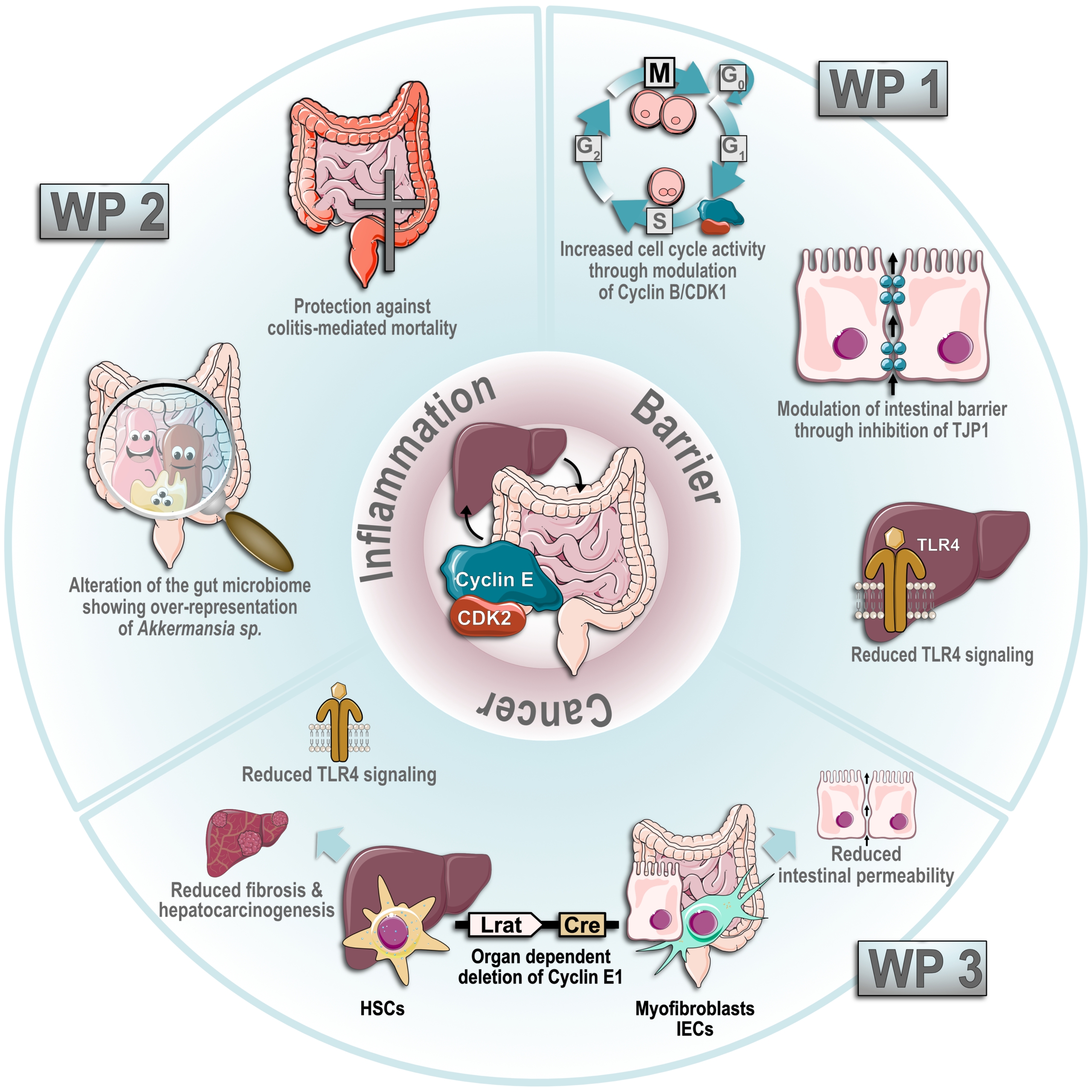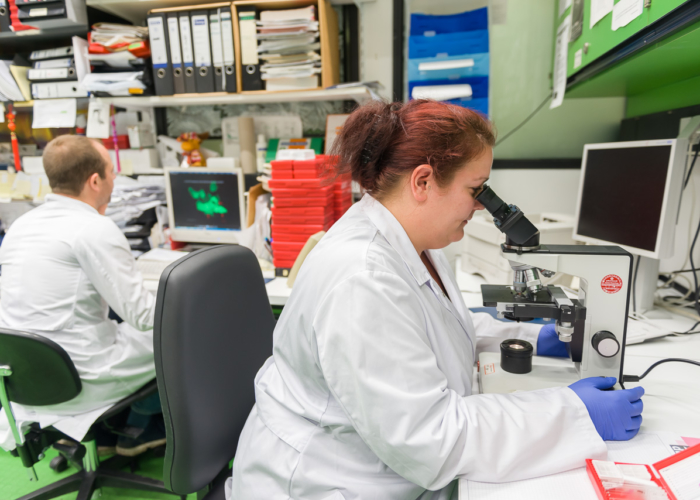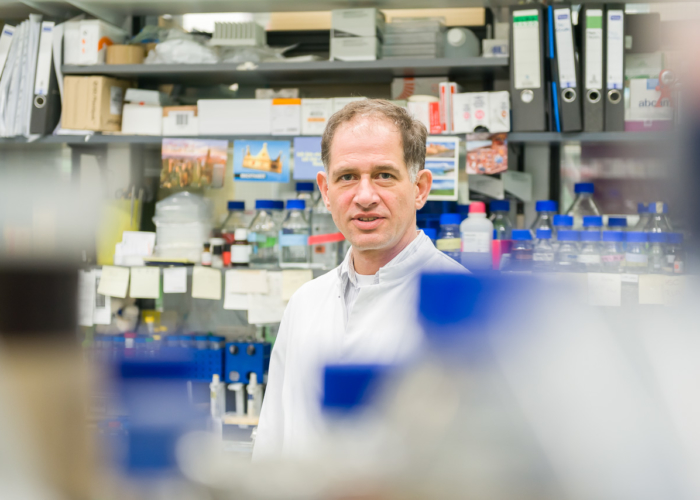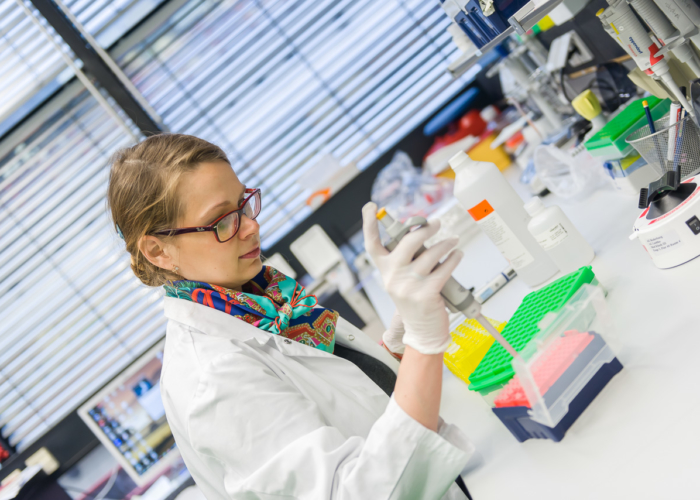A02: Tissue regeneration as a critical component of gut‐liver homeostasis
Tissue regeneration is an outstanding ability of liver and intestinal epithelium and requires precise regulation of the cell cycle machinery including the complex of E-type Cyclins (i.e. Cyclin E1, Cyclin E2) with Cdk2.
Project A02 investigates the role of Cyclin E/Cdk2 for the gut-liver axis and especially focus on the underlying mechanisms controlling intestinal barrier, inflammation and cancer formation.
In the previous funding period we made the unexpected but important observation that Cyclin E/Cdk2 contribute to regulate the intestinal barrier and has an impact on inflammatory response.
As a consequence, inactivation of Cyclin E/Cdk2 in the intestinal epithelium enhances the intestinal barrier and protects from severe experimental colitis. Based on these findings we now aim at deciphering the underlying molecular and cellular mechanisms for these effects.
In this project we will
-
Elucidate the molecular mechanisms that modulate the gut barrier through Cyclin E/Cdk2 in homeostasis or disease.
-
Dissect the functions of Cyclin E1 within the crosstalk between gut and liver in cancer development.
-
Analyse the pro-inflammatory mechanisms of Cyclin E1 in murine colitis.

Graphical summary of previous results and research concept:
Work package (WP) 1: Our data so far surprisingly demonstrates that loss of Cyclin E/Cdk2 enhances both intestinal proliferation and barrier, which is associated with over-expression of Cyclin B1/Cdk1 andTjp1(encoding ZO-1) Using state-of-the-art techniques we will now clarify the underlying de-regulated signaling cascades on the transcriptome and proteome level. WP2: Our data suggests that loss of Cyclin E1 protects from mortality mediated by DSS-driven severe acute colitis and modulates the intestinal microbiome. This finding is highly relevant as it points directly to a therapeutic application possibility through the application of Cyclin E inhibitors in the large intestine in order to dampen acute colitis. WP3: We previously demonstrated that genetic inactivation of Cyclin E1 can protect from liver fibrosis and hepatocarcinogenesis. Here, we will analyse potential contributions of the gut-liver axis such as modulation of barrier function, bacterial translocation from gut to liver and Toll-like receptor 4 (TLR4) signaling.



